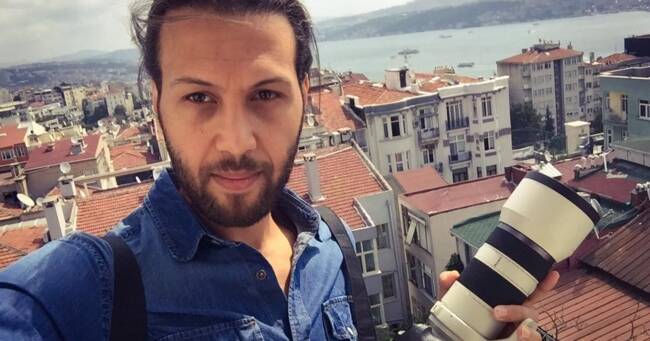A year ago I was standing here in front of two small premature and malnourished girls.
Semper and Tselot, the youngest refugees I've seen in my life.
Mother Mebrhit and father Birhane fled the burning war in Ethiopia with the two girls in their arms.
To top it all off, the mother's breasts dried out on milk during the escape from all the pain that stung in her terrified soul.
The premature babies and the mother needed emergency care when they arrived at the refugee camp.
A year ago, I witnessed the doctors 'doubts and the parents' helplessness.
Throughout the year, I could not stop thinking about the two weak, small trembling bodies and the father's voice: "We see that they die before our eyes."
"Tselot has energy for two girls"
Today, we return to the border area between Sudan and Ethiopia to monitor the development of the violent fighting between Ethiopia's government forces and the rebels in Tigray.
Here in the Um Rakuba refugee camp on the Sudanese side of the border, we meet the same family, but only with daughter Tselot this time.
Semper could not fight anymore and gave his place in life to his sister.
The feeling when you see life literally pulsating and shining in the eyes of a child who once almost lost his life and the hope of surviving is an indescribable feeling.
"Tselot has energy for two girls," says her mother Mebrhit as she fills a small bowl with food to silence the girl's screaming hunger.
"She got Semper's energy," the mother continues.
Of course, there is a joy in the mother that she hugs her daughter who defeated death.
But in her dark eyes I see a reflection of a tear that emerges as soon as we mention her second daughter Semper.
And if the mother manages to pull back the tears, she still can not hide them in the voice that bears the pain of loss.
Tselot is one year old, she fills the hut with laughter and throws kisses to everyone.
She is so elated and tries to hang on to her mother's neck and attract her attention while we interview the family.
She fills the silence in the void after her sister's death as if she does not want to leave room for her parents to live in grief.
"Here is something worth living for"
I stand there and my emotions oscillate in a surreal happiness over seeing Teslot.
Happiness takes me under my arms and flies and then quickly and violently collides with the roof of misery in the crumbling reality of a dusty, worn hut that smells of coal and incense.
It is tragic that the family is still on a muddy escape route.
It is tragic that all clocks are standing still and the only thing that is changing and expanding is the wound in the family's soul and the millions of people affected by the burning conflict.
But there is a ritual-like spirit in the resistance smile that Tselot evokes.
She wears it like an old African mantra to protect her family from the constant presence of death in the surroundings.
The small simple activities that take place in the hut say a lot about a life.
That the father, after all, talks about the future, that the mother sits and cooks Ethiopian coffee on a charcoal grill in a corner that illustrates a kitchen, and that Tselot tries to stand with the support of the hut wall to balance and take her first steps.
It says much more about life than the real existence of death in the air.
Tesloot with its short life and stubborn existence shouts in the face of the world that here, and in spite of everything, there is something worth living for.
Here she also wants to believe in a better future.

